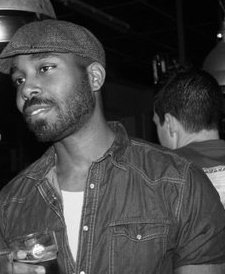For the 50th program of Cases Rebelles we asked to several persons we like to participate by responding to the french word « combat(s) ». Egbert Alejandro Martina writer, activist, afro-caribbean living in Netherlands offered us this wonderful piece about « combat breathing« . Our warmest thanks to Egbert ! And we strongly recommend you to visit his great blog : http://processedlives.wordpress.com/
We often don’t meditate on the embodied experience of violence that is incremental and accretive, a violence that is neither spectacular nor instantaneous, but slow and corrosive—that wears you out physically, and makes breathing difficult.
Spectacular acts of violence captivate our attention; they quicken our breaths and spur us into collective action. But how often do we meditate on state violence that exerts itself on the body, a violence that not only pushes the life out of you, but tries to erase you completely—that kills in a coordinated and focused act of racial terrorism?
I find Fanon’s meditation on the bodily impact of state violence in A Dying Colonialism instructive in thinking about combat—or the struggle. In Fanon’s view, the grammar of state terror continuously subjects racialized bodies to a fraught, traumatic and potentially fatal exercise of « combat breathing. » Combat breathing is, as Fanon writes, « an observed, an occupied breathing. » It names the very act of mustering our life energies in order to continue to live, to breathe and to survive the repetitive, mundane, and all-encompassing nature of state violence.
Under these conditions, « I can’t breathe »—the last words of Eric Garner and Jimmy Mubenga—constitutes not only a plea to acknowledge the life of Black and blackened bodies, but also renders audible within words the deadly effects of mundane state terror that makes the air hard to breathe. When the state wants you gone, or dead, then breathing—living itself—can be an act of resistance, a subversive act, an act of defiance.
My breathing is my spirit; it is embodied resistance; it is literally my lifeline. It is my struggle against the mental, emotional, and physical effects of state terror. It gives me strength in relation to all the forces that seek to control, or arrest, my breathing through language or action. Breathing while Black is an affirmation of Black life lived in the wake of slavery—those of us who are positioned as ontologically, civically, socially dead.
For me, the struggle is the struggle to breathe—to breathe life into radical movements, to create breathing space. In this, I follow Derrick Bell, who advocates breathing as defiance. To Bell, breathing as defiance, and even our exhaustion—our lack of breath—takes something away from those who have drawn breath from the energies of Black and blackened folk. « I lives, » in the words of Mrs. Biona MacDonald, « to harass white folks. »
By seeing breathing as a radical act I acknowledge that the struggle is not merely protests in the streets, but it is a steady action against the almost imperceptible effects of slow violence on my body. In a disorienting turn, Fanon argues that the end of white supremacy demands nothing less than « the end of the world »—the end of toxic ecologies that make it difficult for us to breathe. But how do we move beyond this epistemological atmosphere that, at once, supports highly fragile Black « lives, » while demanding our erasure? How do we theorize, struggle against erasure when anti-blackness pervades « the epistemic air we breathe »? When there is, in the words of Frank Wilderson, « no liberated psychic zone [that offers us] sanctuary. »
« To say we must be free of air, » and I turn again to Frank Wilderson, « while admitting to knowing of no other source of breath, is what I have tried to do here. » We struggle to find another source of breath. We must breathe, because there is nothing else.
Egbert Alejandro Martina

